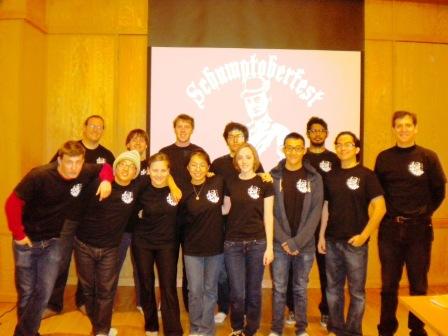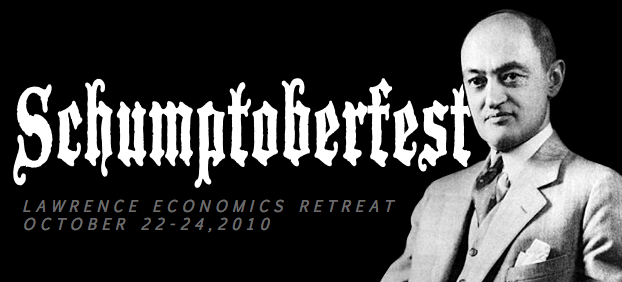Many students have asked me about the types of things covered in Industrial Organization (Econ 400), and I typically respond with blah blah blah price theory blah blah blah structure-conduct-performance until the student leaves my office. Perhaps a better response would simply be to give students a list of interesting topics that would come under an IO umbrella, such as Comcast’s dispute with Netflix. There’s many issues embedded there, including this tasty one:
A recent study found that at peak times, Netflix represented 20 percent of Internet download traffic in the United States. That makes it a de facto competitor for incumbent distributors like Comcast and Time Warner Cable, which are eager to protect both the subscription television business and the emerging video-on-demand business.
I wonder how soon cable and satellite television will be relegated to economic history courses, a la the video rental business.
Perhaps you can write a paper on that next term.
 For those of you interested in an extra unit or two, next term we are offering an independent study / tutorial reading Joseph Schumpeter’s classic, Capitalism, Socialism, and Democracy. For those of you unfamiliar with the book,
For those of you interested in an extra unit or two, next term we are offering an independent study / tutorial reading Joseph Schumpeter’s classic, Capitalism, Socialism, and Democracy. For those of you unfamiliar with the book, 



 n the second post here, I will simply concentrate on Chapter VII of Capitalism, Socialism, and Democracy, and try to tie together some themes for the weekend. For our purposes, I have numbered the paragraphs 1-13.
n the second post here, I will simply concentrate on Chapter VII of Capitalism, Socialism, and Democracy, and try to tie together some themes for the weekend. For our purposes, I have numbered the paragraphs 1-13. This is a first in a series of short posts to guide the Schumptoberfest readings. I included these readings literally to give you an introduction to Schumpeter and the “Schumpeterian Hypotheses.”
This is a first in a series of short posts to guide the Schumptoberfest readings. I included these readings literally to give you an introduction to Schumpeter and the “Schumpeterian Hypotheses.”
 We would like to engage students who have a good understanding of micro theory and are interested in innovation and entrepreneurship. The readings dovetail nicely with my Economics 400 (IO) and 450 (theory of the firm) courses.
We would like to engage students who have a good understanding of micro theory and are interested in innovation and entrepreneurship. The readings dovetail nicely with my Economics 400 (IO) and 450 (theory of the firm) courses.
 Speaking of careers in business,
Speaking of careers in business,